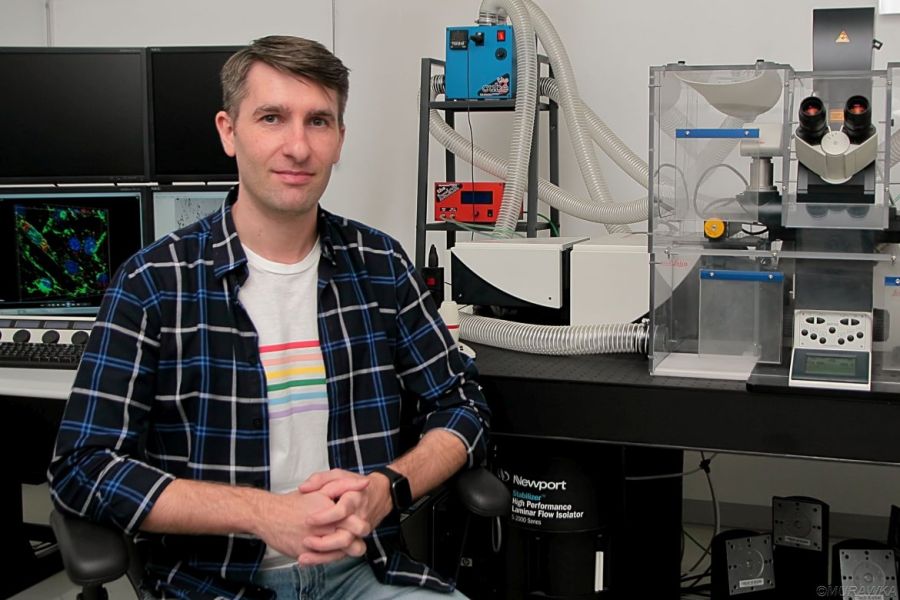Can nanoparticles be effective medication carriers? What is so-called biomimetic functionalisation, and what is its role in combating cancer? Bartosz Grześkowiak, M.D., Ph.D., a scientist at the AMU's NanoBioMedical Centre, talks about the research undertaken by a team of scientists at the 'Życie Uniwersyteckie'.
Nanomedicine involves the use of nanometre-scale particles to combat and diagnose diseases. Nanoparticles are a crucial component of nanomedicine and are of great interest as a potential delivery system for anti-cancer therapy. The latest generation of nanomaterials used in nanomedicine also allows traditional treatments to be combined with experimental ones, such as photothermal therapy, contributing to a synergistic treatment effect. However, although nanoparticles are promising delivery carriers for medicines, their poor bioavailability, instability in the circulatory system, inadequate biodistribution in tissues and toxicity are some limitations to their practical application.
To overcome the problem of low efficiency of drug delivery to cancer cells, we are conducting research focusing on the development of nanoparticles with improved properties. In recent years, biomimetic (mimicking elements of nature) functionalisation, which involves coating nanoparticles with cell membranes, has become a promising strategy. The SONATA project has yielded a platform based on polymeric nanoparticles coated with tumour cell membranes (biomimetic nanoparticles) having an extended circulation time in the blood for improved active targeting of cancer cells, low-molecular-weight drug delivery, imaging and photothermal therapy in liver cancer model.


